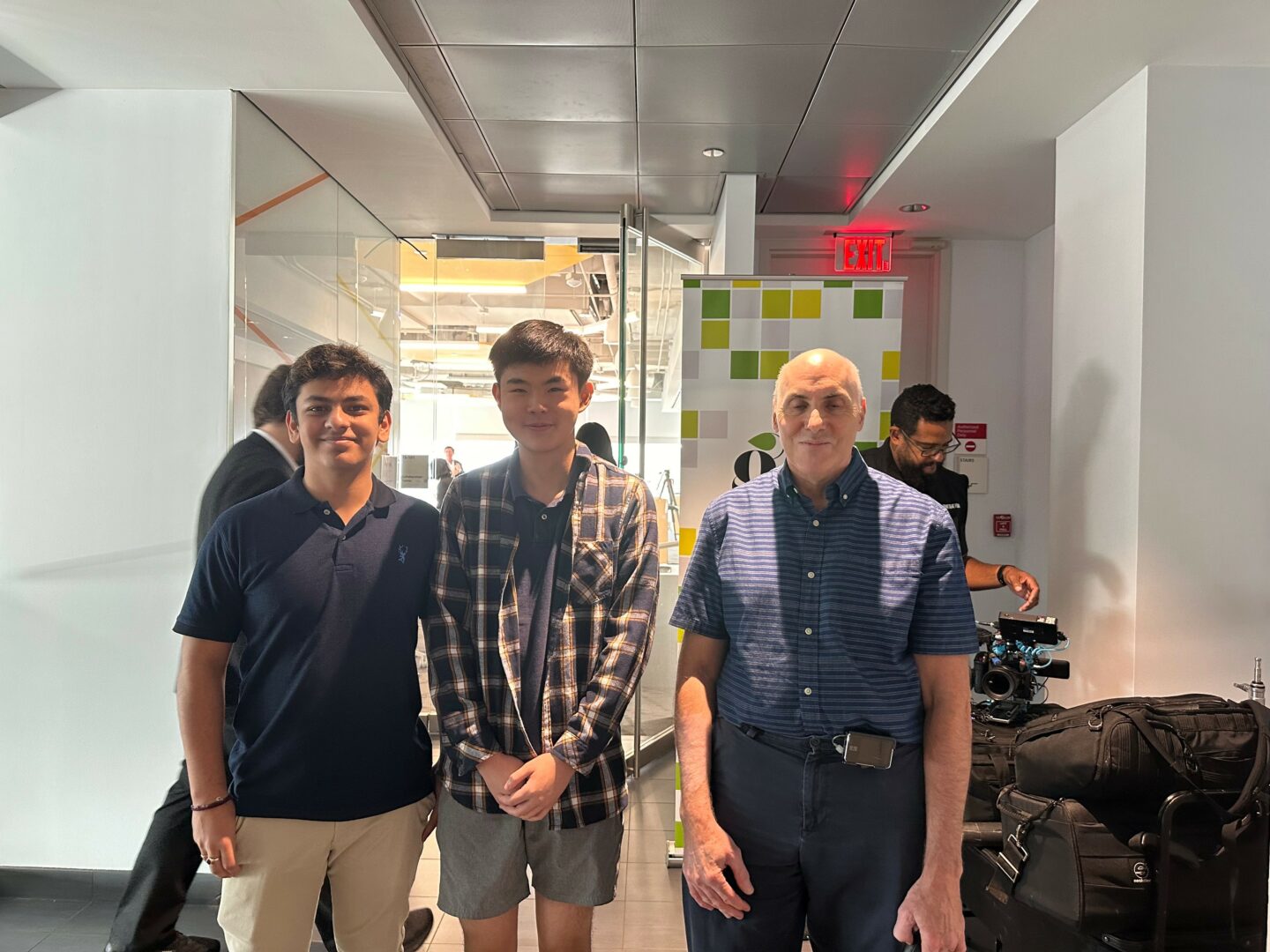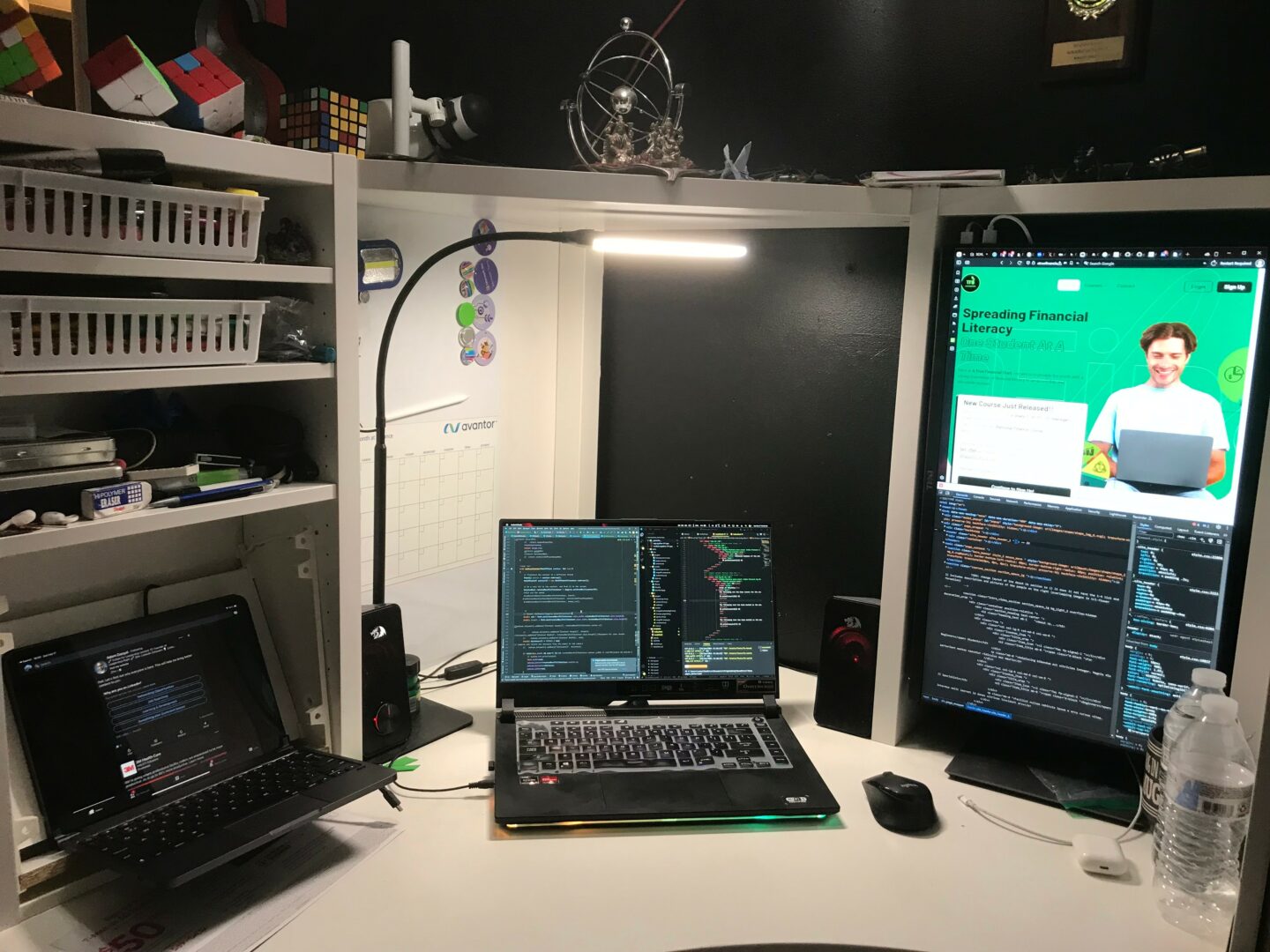We were lucky to catch up with Saharsha Navani recently and have shared our conversation below.
Hi Saharsha, appreciate you sitting with us today to share your wisdom with our readers. So, let’s start with resilience – where do you get your resilience from?
I got my resilience by having an unwavering faith in the goodwill of humanity; despite how many times my faith has been tested to its extreme, maintaining my belief has always gotten me through.
During my freshmen year of high school, my best friend and I decided to start a business venture centered teen meditation and positive mental health practices to reduce the overly-prevalent stress in our school’s environment. It was the first time either of us had started a business; we saw all the movies and TV shows (The Social Network, etc—you get the picture), and researched the best we could to set us up for our own multi-million dollar success story. We did all the preparation: we launched our website, marketed on social media, and, eventually, we started gaining some revenue, amassing to over $15,000 at one point.
We were elated. We actually made money! Being 50/50 business partners, I expected half of the profit earned. But due to a stipulation that evaded me when my partner registered the business, my ownership of the business was diluted to 5% yet I was still expected to pay half of the expenses, demanding over $3k in back payments.
I wanted to seek revenge and spite him for the rest of my life—he almost cost my family and I $3k out-of-pocket. But my faith told me otherwise. If I held onto this resentment, it would carry with me for a long time, costing me my own peace and sanity. My partner, being capable of doing something like this was likely struggling with something himself. Maybe he was pressured by his family, maybe he felt the financial burden was too much, or maybe he simply didn’t understand the implications of his actions. Regardless, my immediate anger started to simmer down, replaced by a strange sort of understanding, even empathy.
It wasn’t an easy shift. For weeks, I wrestled with the injustice of it all. Every time I saw him in the hallways, a knot of frustration would tighten in my chest. The $3,000 felt like a tangible loss, a betrayal of trust. My family, though supportive, felt the sting too. There were moments I wanted to expose him, to let everyone know what he had done. The entrepreneurial dreams we shared felt shattered, replaced by a bitter reality.
But then I’d remember my core belief: the inherent goodness in people. If I truly believed in it, wasn’t it my responsibility to act accordingly, even when faced with such disappointment? Holding onto anger and bitterness, plotting revenge – that didn’t feel like something a person with unwavering faith in humanity would do. Instead, I realized that to truly honor my belief, I needed to move on. Not for his sake, but for mine. My faith wasn’t just about believing in the goodness of others, it was about believing in the possibility of a second chance, in the existence of honest people with whom I could build something meaningful. Dwelling on the past, on the betrayal, would only hinder me from finding those opportunities.
That first venture slammed me with some hard truths: legal diligence matters, partnerships are complex, and not everyone plays by the same rules. Those lessons stuck with me, and I knew I needed to find a better path forward.
And I did. I found other individuals with the same entrepreneurial spirit, the same drive to build and create. We connected over shared ambitions and a fundamental belief in ethical collaboration. Together, we identified a pressing need in the research community: to improve productivity for those dedicated to creating life-saving innovations. We built inQ Technologies around that, and it resonated. We recently raised $1.7 million in pre-seed funding, backed by reputable venture capital firms who believe in our vision.
If I had let that initial disappointment fester, if I had allowed it to extinguish my faith in others, I would never have taken the chance on these new partners. I would have been too guarded, too reluctant to trust. But because I held onto that core belief in the goodwill of humanity, despite the prior setback, I opened myself up to this incredible opportunity. Now, I’m not just building a business; I’m actively impacting the lives of researchers who are making a real difference in the world. That positive impact, the ability to contribute in such a meaningful way, stems directly from that unwavering faith. It’s a testament to the idea that even after the darkest nights, there will eventually be a dawn. And that belief, along with my faith in the potential of others, is what keeps me moving forward.

Appreciate the insights and wisdom. Before we dig deeper and ask you about the skills that matter and more, maybe you can tell our readers about yourself?
I have always been interested in computer science since a young age—with the advent of AI, I decided to tackle that as my next frontier. I am an AI/ML researcher and engineer working with organizations like Google DeepMind, the MIT-IBM Watson AI Lab, and the U.S. Air Force. My technical expertise has led me to be chosen as one of the original 15 core members of the United Nations IGF Dynamic Teen Coalition, collaborating with global leaders like Vinton Cerf, VP of Google, on global AI legislation. My next big goal is to pursue my AI startup, inQ Technologies, focused on optimizing research and augmenting human productivity, which has achieved a $10 million valuation and garnered support from institutions such as UPenn, Stanford, Dell, and MIT.
Pursuing inQ excites me so much because it has the potential to change the future of work. In nearly every organizational office or workspace, so many people’s talents and ingenious ideas are being put to waste by redundant, mindless work. It requires no ingenuity and leads to resentment and aggravation over many years of doing the same mindless things. With inQ, all of this can be automated in the same way one prompts ChatGPT; inQ’s Engine takes the natural language input, divides it into tasks, and executes them end-to-end with nearly a 90% accuracy over multiple runs. If this technology can be perfected and integrated seamlessly into enterprises, the paradigm of work shifts from employers mainly valuing an employee’s time to an employee’s creativity and ingenuity in solving problems.
With this, societal progress could ramp up significantly; with everyone wasting less time, more time and thought can be put towards solving pressing small- and large-scale problems in enterprise and society. Innovation will skyrocket. Ultimately, inQ Technologies represents my passion for leveraging AI to unlock human potential and accelerate innovation on a global scale. We’re on the cusp of a transformative shift in how work is done, and I’m incredibly excited to be leading the charge.
Looking back, what do you think were the three qualities, skills, or areas of knowledge that were most impactful in your journey? What advice do you have for folks who are early in their journey in terms of how they can best develop or improve on these?
To get where I am now, I relied on the ability to take a “long-term” view on people and relationships, to be unapologetically obsessed about my passions, and to always value the journey more than any destination. Developing a long-term perspective regarding people is a lesson I learned, in part, from studying Steve Jobs and how he built and ran businesses. He understood that while people inevitably make mistakes, the true value lies in assessing their potential contribution to the later stages of your journey. It’s about evaluating whether an individual’s strengths and trajectory align with where you ultimately envision going, and how their presence will shape that future. Furthermore, being unapologetically obsessed with my passions often meant facing ridicule, particularly during my school years. While others were focused on slacking off or adhering to the typical social norms, I was intensely focused on pursuing dreams they couldn’t quite grasp. This taught me a crucial lesson: to accomplish truly ambitious goals, you have to be prepared to be misunderstood and sometimes stand alone in your vision. Finally, consistently valuing the journey over any fixed destination is a philosophy deeply rooted in my early exploration of Stoicism, which began in 8th grade and continued throughout high school. These philosophies emphasize not concerning yourself with what lies outside your control. Whether or not you reach a specific goal is often influenced by fate, the actions of others, and the inherent randomness of life. What truly matters, and what you can control, are your actions and the lessons and experiences you accumulate in the pursuit of that goal. Therefore, even if, despite your best efforts, the intended destination remains out of reach, you can still find pride in knowing you did everything within your power to try. The key is to then reflect on the entire journey, understand your place within it, glean the invaluable insights gained, and use that understanding as a foundation for moving forward towards your next objective.

Before we go, maybe you can tell us a bit about your parents and what you feel was the most impactful thing they did for you?
My parents valued honesty and transparency above all else, teaching by example in our household. Being exposed to my parents’ financial struggles, marriage struggles, the terrible events in our extended family, and nearly everything that my parents recognized about my family’s situation gave me a bigger-picture mindset.
By no means did exposing me to these aspects of my life detract from my childhood. I was as happy as I could have been and I’m at peace with my family’s situation. Learning about these more challenging aspects of life shifted my understanding of what it meant to live a fulfilling life. Where I might have traditionally been taught to simply be happy and content with my individual circumstances, witnessing my parents’ struggles fostered a sense of responsibility and a devotion to something larger than myself – a community. Approaching these realities with a mindset of “how can I improve this?” or, if something was insurmountable, “how do we move past it together?” became ingrained in me. This process, far from being disheartening, actually sparked a deep compassion for others and solidified my inherent belief in the goodwill of people. It also forged my ambition to leverage my skills and personality to create tangible solutions for my community, to contribute to that larger whole in a meaningful way.
Contact Info:
- Instagram: saharsha.navani
- Linkedin: https://www.linkedin.com/in/saharsha-navani
Image Credits
The computer/workstation image was taken by me. The image with myself, my co-founder, and Dr. Drew Weissman was taken by my other co-founder. We had the consent of Dr. Drew Weissman to take this photo.
so if you or someone you know deserves recognition please let us know here.




